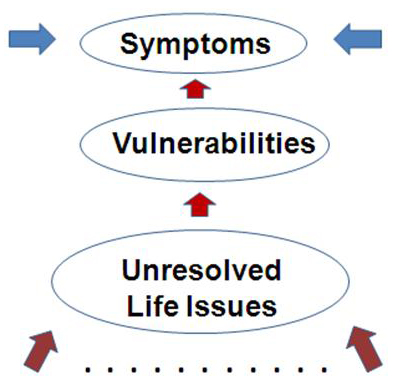
Thought Field Therapy – The missing link to effective trauma-informed care and practice
By Christopher Semmens Clinical Psychologist Perth, Western Australia
All truth passes through three stages. First, it is ridiculed. Second, it is violently opposed. Third, it is accepted as being self-evident. Arthur Schopenhauer
There is nothing more difficult to take in hand, more perilous to conduct, or more uncertain in its success, than to take the lead in the introduction of a new order of things. Niccolo Machiavlli
Trauma- informed care and practice is a framework for the provision of services for mental health clients that originated in the early 1990s and has especially been put forth as a sensible service model since Harris and Fallot’s 2001 publication Using trauma theory to design service systems. Trauma-informed care can be seen to be characterised by three main considerations in regard to the provision of treatment services:
- That they incorporate a recognition of the reality that there is a high incidence of traumatic stress in those presenting for mental health care services.
- That a comprehensive understanding of the significant psychological, neurological, biological and social manifestation of traumatic and violent experiences can have on a person.
- That the care provided to these clients in recognising these effects is collaborative, skill-based and supportive.
In Australia these ideas were the focus of a consciousness raising conference: Trauma-Informed Care and Practice: Meeting the Challenge conducted by the Mental Health Coordinating Council in Sydney in June 2011. The conference was part of an initiative towards a national agenda to promote the philosophy of trauma-informed care to be integrated into practice across service systems throughout Australia.
It has only really been since studies such as Continue reading “TFT: The Missing Link”
